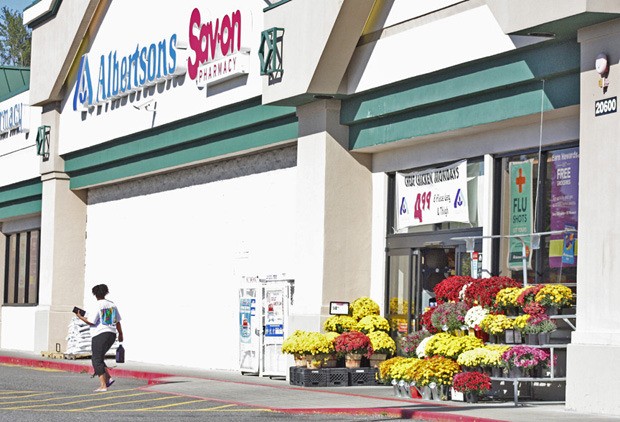Like an extensive cable or satellite television guide, today’s grocery store outlet menu is rife with choices.
But in a soft, slow-to-recover economy, the wide-open market is banking up closures, too.
And with the recent news that Albertsons – a long-established, reputable supermarket chain – is downsizing, more of the market’s casualties are rattling local communities.
SuperValu Inc., the store’s Minneapolis-based parent company owner, announced last week that it will close the only Albertsons store in Kent and one of two in Auburn – part of a 27-store shutdown in Washington, Oregon and Southern California.
Debt-troubled Supervalu is shutting down 60 “underperforming or non-strategic” nationwide, an urgently needed move, it says, to reduce costs and improve shareholder value.
Supervalu is considered one of the more troubled companies in the industry, yet rivals such as Kroger Co., which operates Fred Meyer, is considered to be a better operator.
“This is a downright shame,” said one mother, collecting bakery goods from the Albertsons on Kent’s Benson Highway. “This is a good store. This is where I like to go.”
Many of the stores are expected to close before Dec. 1. While the company isn’t releasing any sensitive information -understandably so – layoffs are likely. Not all union workers will lose jobs; some workers could be transferred to other stores.
Still, it is a blow, symptomatic of the cost-conscious consumer in a wobbly economy.
More and more stores – of varying size and nature – are cutting into the grocery-buying business. That intense competition from rival stores has taken a big bite out of the community supermarkets ability to survive.
Other chains have been victimized.
Quality Food Centers, for example, closed its “under-performing” store in south Auburn two years ago.
Dollar stores, large discounters and big-box retailers are in a food fight with traditional supermarkets.
One-stop Walmart, Target and Fred Meyer have been expanding aggressively into the grocery business in recent years, compressing profit margins in an industry already plagued by low returns.
“None are direct competitors, none will take 50 percent of the business. But if you add 10 of them, and each one takes 1, 2, 3 or 10 percent (of the market), it certainly is more than enough to push a supermarket into the red,” said Jim Prevor, a food analyst at PerishablePundit.com, a website that follows the fresh food industry.
Prevor says the traditional grocery store has become something of a dinosaur, and it is up to food giants to evolve and keep up with the times.
Some have.
For consumers willing to pay a bit more, supermarkets are reinventing themselves, offering specialty brands, emphasizing fresh meat, bread and produce departments. They promote quality, signature food, friendly service, pricier organic goods, heck, even their wooden floors.
Supermarkets, Prevor says, will continue to exist even if there isn’t one in every neighborhood. But there also will continue to be more outlets and choices – from warehouse clubs to convenience stops – for consumers.
The farmers market, meanwhile, is becoming a viable option.
Walmart plans to open at least 20 smaller-format Neighborhood Market grocery stores in California in the next year.
Where families go depends largely on income. For some, buying groceries is a one-stop adventure; for others it might be a coupon-driven, three-store mission, like shopping for clothes.
“Instead of just going to a local grocery store, people are saying, ‘well, this weekend, I’m having a big dinner party, I’m gonna go to Whole Foods. I’m going to pay a little extra to get certain things.’ ” Prevor said. “Other times, they are budgeting and shopping at a (discount grocery outlet).”
A bargain means different things to different people, Prevor added. Warehouse clubs offer the best bargain based on price-per-pound purchases. On the other hand, he said, that means more of a bigger out-of-pocket expenditure.
But getting everything in the right place at one location is a thing of the past, Prevor said.
“Consumers are diverse, aggressive. They go from here to there for best bargains,” Prevor said. “… And choices change based on economic situation.”
The new economy and the evolving supermarket industry is upon us.
What had been Goliaths in the grocery industry of the past now must share the food outlet territory with others, including the Davids.
Albertsons knows as much.


